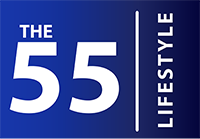Choosing healthy foods is a smart thing to do no matter how old you are. For men 50 and older who are trying to lose weight and be healthier, the challenge can be not only losing the extra pounds but sustaining the loss as a matter of lifestyle. In this diet series, we’ll touch on two of the many ingredients regarding weight loss and health: carbs and sugars.
Carbohydrates
Carbohydrates in themselves are necessary in our diet, the right type of carbs provides us with fiber, which we know aids in the absorption of nutrients, helps control blood sugar levels and because of the slow digestion, helps us feel full after a meal. Men over 50 need about 30 grams of fiber a day, but unfortunately most of us either exponentially exceed that amount and don’t get enough of the “right” carbs.
One of the least healthy components of most American diets is refined carbohydrates, a broad category that can include breads, rice, sugars and syrups, juices, and flours, just to name a few.
Refined carbs are also found in many processed foods, those that have been modified with sweeteners and additives, or chemically processed to extend shelf life. Many medical studies and research show strong links between diets high in refined carbohydrates and weight gain.
It’s no secret that cutting back on processed foods and carbohydrates is one of the most effective ways to lose weight and start using body fat as fuel. Eating refined carbs stimulates the production of insulin, the fat storage hormone within your body. It also increases hunger and largely prevents stored body fat being accessed.
If your diet is full of refined carbs or high glycemic grain foods, your body is continually in fat storage mode and unable to use its stored triglycerides for fat burning. These stored triglycerides are primarily found in the adipose tissue (fat) around the waist. If you want to reduce your waistline, then start reducing your refined carbohydrate intake.
The Institute of Medicine recommends men 50 and older should consume 50% of their daily calories from carbs for successful weight loss. Since carbohydrates provide 4 calories per gram, it’s easy to calculate your needs using carb percentage recommendations. According to Harvard Medical School, you can use your body weight to estimate your individualized calorie needs for weight maintenance by multiplying your body weight–in pounds–by:
13 if you are sedentary
16 if you are moderately active
18 if you exercise regularly
Determine the number of grams of carbs you need each day by calculating 50% of your total calorie intake and divide by 4.
Carbohydrates To Cut Back On And The Best Types Of Foods To Replace Them With:
1. Bread and other bakery products made from refined wheat flour-these foods usually have the strongest effect on your blood sugar and therefore insulin. Stone-ground whole grain and traditional rye bread makes a good replacement.
2. Pasta made from wheat-a healthier alternative available is gluten-free Quinoa Pasta.
3. White Rice-too much can raise your blood sugar to a level where you stimulate body fat storage. For a better option, try a slower digesting brown rice or wild rice.
4. Potatoes-if you’re looking to lose weight, it’s a good idea to avoid potatoes for a while. They have one of the strongest effects on your blood glucose levels of any vegetable. Once at your ideal weight, try pumpkin, butternut squash or sweet potatoes for a more nutritious replacement.
Bottom Line on Carbs:
A good rule of thumb in determining what is refined is to remember that if it isn’t a natural, whole food, then it’s been altered from its original state. Blood levels of the hormone insulin go way down when carbohydrate intake is reduced. High insulin levels contribute to fat storage, and low insulin levels facilitate fat burning.
Sugars-Does cutting out sugar increase weight loss?
A common question by many men over 50 is, does sugar and sugar-based products cause weight gain or stop weight loss? The simple answer is, yes, there are no nutritional benefit that comes from added sugars in your diet. In an article published by the Harvard Medical School, added sugars increase weight gain and provides “empty calories” (calories devoid of nutrients) and is a factor in heart disease.
Sugar has a place in our diet. Glucose is the essential fuel for your body, absorbed by your tissues and organs, and derived from the food we eat. If we don’t get enough, our body makes it. Fructose on the other hand, is not readily accepted by our body and is processed by your liver where it’s turned to fat and released into your bloodstream.
With the number of articles and research material, it should not come as a surprise that sugary drinks (sodas, energy drinks, fruit juices) account for over 25% of daily calories and over one-third of our sugar use as a nation. (HMS). And although there has been significant reduction in the use of high fructose corn syrup in foods, added sugar, regardless of its source, is still added sugar. It gets processed as fatty acids and returned to your bloodstream to be stored in your body, most likely in the areas such as your stomach, legs, and buttocks.
Recommended Amounts of Sugar
Is there a recommended daily amount of sugar? The USDA MyPlate application (highly recommended for dietary planning) doesn’t list any added sugar intake for healthy diets. It does offer a limit of 60 grams a day. The American Heart Association (AHA), suggests the maximum amount of added sugars you should eat in a day for men are:
150 calories per day (37.5 grams or 9 teaspoons)
To put that into perspective, one 12 oz. can of soda contains 140 calories from sugar, while a regular sized candy bar contains 120 calories from sugar.
Foods offering natural sugar
It is important to make the distinction between added and naturally occurring sugars. Within moderation and recommended daily amounts, you can get all the necessary sugar your body needs from your food.
For a man over 50 adhering to a 2,400 daily calorie pattern from ChooseMyPlate.gov (MyPlate) you can add:
2 cups of fruits
3 cups vegetables
6 ½ 8 ounces of protein
8 ounces of grains
3 cups of dairy
Remember that processed foods (including sugar) is discouraged in any form.
We hope that the information here offers you valuable insight into a healthy lifestyle plan and the best way to manage carbs and sugars in your diet. Check back soon for another segment in the series, Diet Concerns For Men Over 50.
References
Sanders, Helen. “Cutting Carbs to Lose Weight.” Health Ambition, 12 Mar. 2018, www.healthambition.com/cutting-carbs-lose-weight/.
More reading:
Using the Nutrition Facts Label: A How-To Guide for Older Adults
Refined Carbohydrate List
The 55 Lifestyle is a participant in the Amazon Services LLC Associates Program, an affiliate advertising program designed to provide a means for sites to earn advertising fees by advertising and linking to Amazon.com.








